Antonio Alvarez

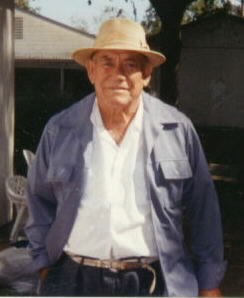


On 1936, Antonio went to James Bowie elementary school and he did not graduate from high school, so he could help his father support his family and quit school because it was the depression. At this time, Antonio's brothers and sisters were often going to school even though Antonio wanted to go to school to learn, he could not go. Antonio's brother Felix would borrow my father's shoes, and my father stayed crying for his shoes, sometimes my father would use his shoes, and uncle stayed barefoot. There were thorns on the ground and their feet got thorns, sometimes the ground was too hot, or it was too cold. Antonio likes to read and he likes seeing the comics in the San Antonio Light newspaper.
My father lived through the depression which were hard times that he never forget. The Relief helped his family a great deal, so they could eat every day. His mother stayed home taking care of the my brothers and sisters at home and she had plenty of housework. Antonio joined the Civilian Conservation Corps (CCC) and he later joined the military during World War II, so he could send money home. He traveled to North Italy, and when the war was over he cam back to San Antonio, Texas. Antonio married Maria Alvarez and he was married 47 years, and now he's a widower living with his son-in-law and daughter, Louis and Maria Chavez, and his seven grandchildren.
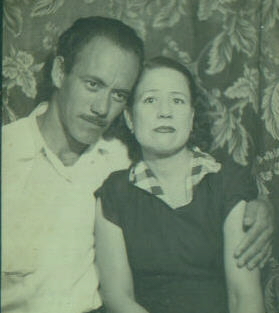
Were you treated different by your teachers at school, and were the students segregated at your school?
No, the teachers were nice, and they treated every student the same. No, the students were not segregated at the James Bowie or Ivring Junior High School.
Why did you quit school?
I had to work to support my family, so I quit and I eventually dropped out of school.
Was your family wealthy during the depression?
No, My family was not wealthy, but my grandparents had some money and their owned a home on the north side of town.
Did your father demand you to work when you were young?
My father's hip got injured on work, so he could not work, eventually I had to stop going to school, and so I earned money to support the family because it was hard times. There was no much money for food, to pay rent and for the utilities. Sometimes, my father worked as a yard-man, but after he went to cool off his thirst with some refreshing beer and he would spend nearly all his earning.
Were your sisters demanded to work by your father when they were young?
No, my father did not tell them to work, but they they wanted money, so they worked cleaning house of the rich people, and they would baby sit, sometimes.
Did your mother worked outside the home during the depression?
My mother would iron clothes for rich people at our home.
Did you and your family go see a doctor when sick?
My parents would take us to the doctor when we got sick, sometimes, but my mother would uses home remedies.
How long did you and your family travel to Midland, Texas and how long did your family and you stay there?
In, 1934, my family and I migrated to Midland, Texas and we travel a long day, and we stayed there to pick up cotton for the season with some degree of hardship that we were overwhelming, so when the season of cotton ended; hence, we went back to San Antonio, Texas.
Was your father an alcoholic in the period of the depression, and did he neglect you when you were a little boy?
My father was an alcoholic, but he bought food and clothes with money I gave him and the money he earned when he worked part-times, sometimes. I did not feel I have been neglected by my father because I loved him.
When did you join the CCC camp and why did you join?
In 1940, I was 17 when I joined the CCC camp (Civilian Conservation Corps) and I worked in recreational parks.
I planted little trees in the forest, and I joined because I wanted to help supported my
family, and so I got paid; hence, I would send the amount of 25 dollars a month.
Did you join the Army of the United States of America and did you send money home?
I join the army in 1942 and I fought in World War II, and I used to send home 30 dollars a month. My family would be waiting by mailbox for the checks as I was told by my youngest sister. My family was very happy.
What part of San Antonio, Texas did you lived when you were a little boy?
I lived in a shack in the West Side slums of city, and it is the poorest neighborhood in San Antonio, Texas, but despite the misery my family were happy to live together.
What are the miseries that you and your family encounter during the depression at your home at the west side of city?
My family and I encountered many ordeals and I going to tell you some only. My home had an out-house that it was 50 feet away from our house. We did not have electricity, and sometimes because my father spend all the money without paying for the bills. My family used kerosene lamps and my mother cooked in a wooden stove. My brother and I chop wood with an ax. My mother would wash clothes on a tub with a wash board, and sometimes my mother, Concha, would boiled the water to wash the clothes. My sisters and brothers had to sleep all in one bed like "sardines" when we were children. In winter time, we placed a tub with charcoal to warm us up, and we sat around the fire. Eventually we did not got sick with the fumes because the house had cracks. Did you have a refrigerator? No, we were very poor. My family and I bathed in a tub that my mother used to wash clothes. My sister named Mary had a date, but she washed her shoes then she placed them in wooden stove to dry them but they burn. She did not go out with her date.
Were there any assistance from the federal government during the depression?
There were the Alazan-Apache Courts in San Antonio, Texas that were the first public housing project for poor people that was prior to World War II. My father had pride and he did not want any kind of government assistance. There was relief that the federal government gave very poor people sack of food and people had to form a line to receive the aid. There was food, but there was no money to buy the food.
Would anybody of your family members go to the dump frequently to pick up food and clothes?
Yes, she gave my family food and clothes she found in the dump where she lived, and she gave us a lot of chicken and eggs to eat every week. My aunt Maria Esquerlara would go to the dump and she found apples, oranges, melons and she found bread with a little bit of mold, but she cut the mold out and it was good to eat. She also found clothes that she gave my family.
What were your feeling during the depression?
I was delight to be together with my family because some children were taken away from their parents.
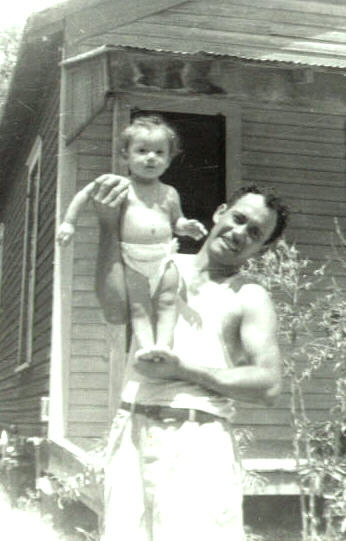
In 1936, Antonio was unemployed, but he was employed by the Civilian Conservation Corps. This program C.C.C. was for young man and my father helped planted little pine trees to promoted soil conservation. In 1944, World War II, my father saw many people injured and suffering, or dying, or dead he saw blood, body parts, solders been boom near him, and he did like what he saw. When, he returned to the states, after the war, and he becomes an alcoholic. In my perspective poverty has always assisted in my relatives from generation to generation, but it can be overcome with education.
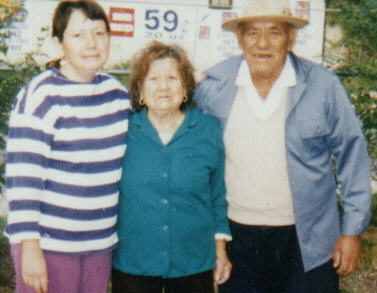
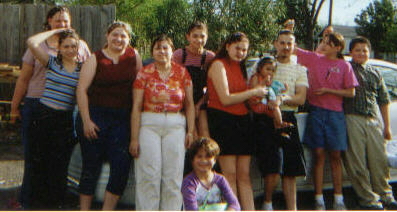
San Antonio Light newspaper